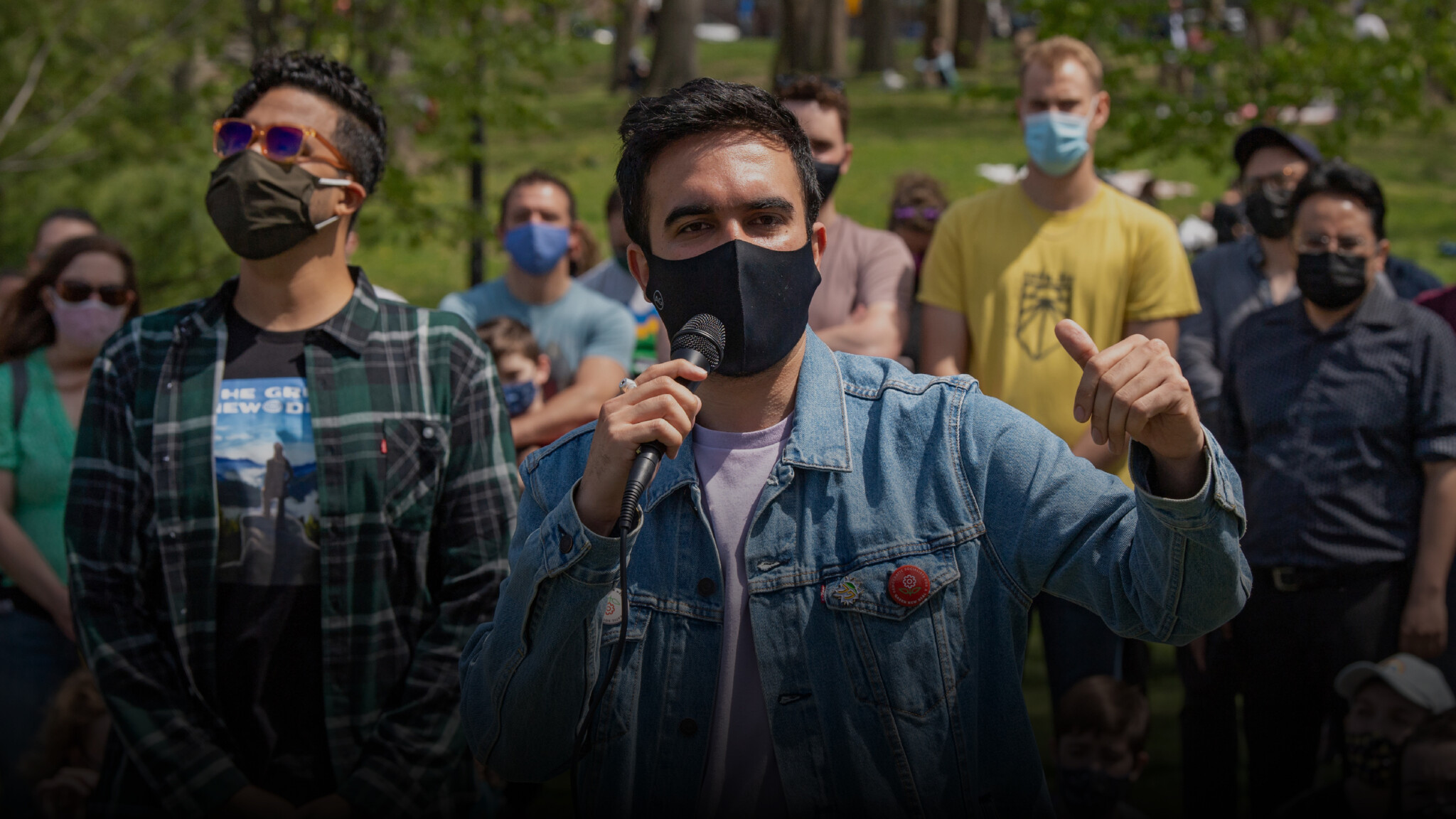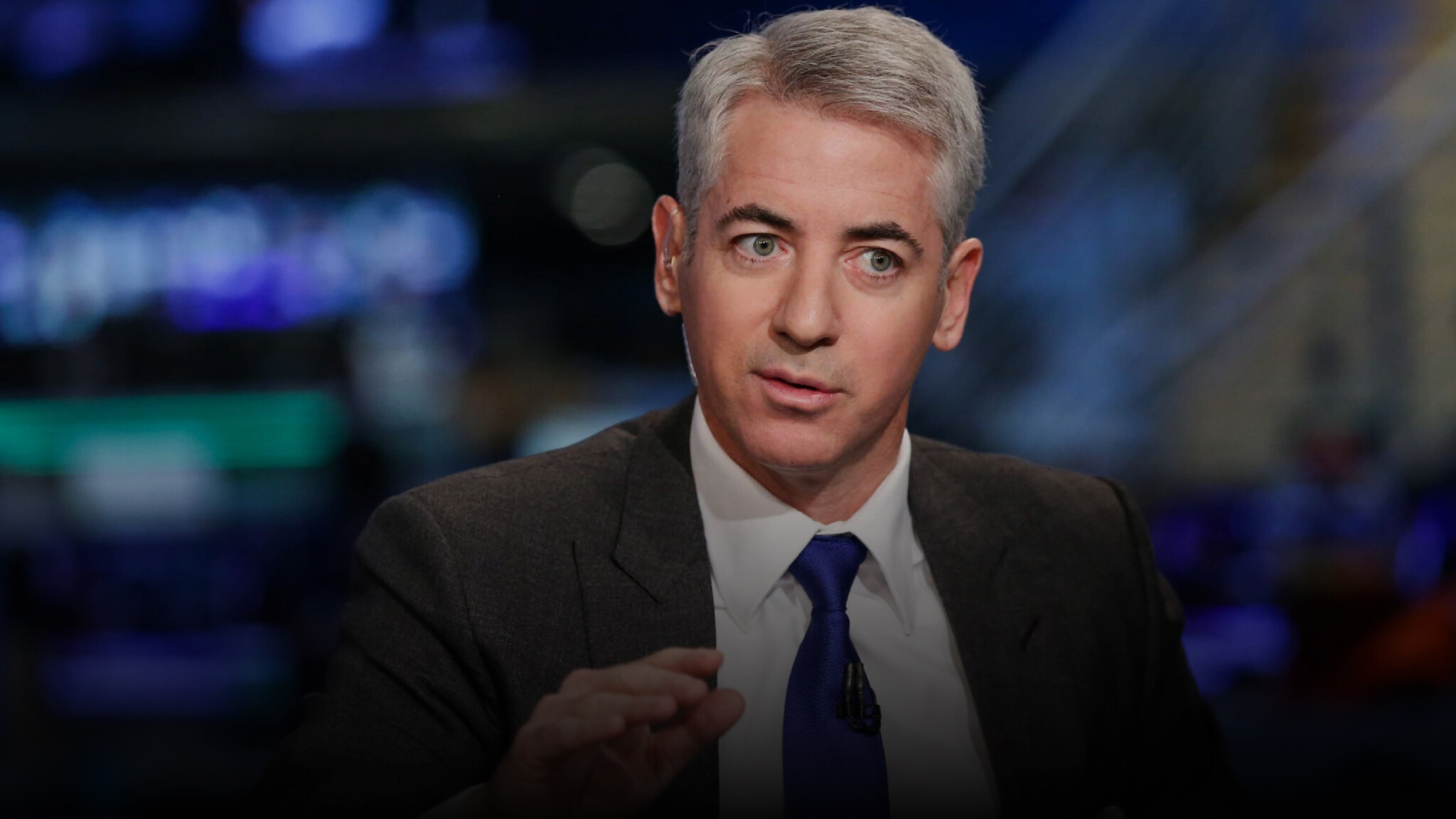“What has NYC become”, Bill Ackman recently tweeted, “that an avowed socialist who has supported defunding the police, whose solution to lowering food prices is city-owned supermarkets, who doesn’t understand that freezing rents will only reduce the supply of housing, who has no experience managing an organization—let alone a city with a $100+ billion budget and a $2 trillion economy—and who believes chants for ‘Globalizing the Intifada’ are acceptable, wins the Democratic Primary?”
Enjoy independent, ad-free journalism - delivered to your inbox each week
Ackman shouldn’t just call out Zohran Mamdani, a man with a troubling history of antisemitic rhetoric who seems likely to become New York City’s next mayor. He should run against him.
Let me be clear about what Mamdani represents. His support for “Globalizing the Intifada” is an endorsement of violence against Jewish people wherever they live. The Intifada was a terror campaign that murdered thousands of innocent civilians. To “globalize” this concept is to advocate for the spread of such savagery worldwide. For a man with such views to lead New York City, home to the largest Jewish population outside of Israel, is unconscionable.
But this story extends far beyond the Jewish community. Every New Yorker deserves better than a leader who supports failed ideologies and inflammatory talking points.
Mamdani’s proposals reveal a troubling lack of understanding about how cities function in the real world. His call for city-owned supermarkets is a throwback to centralized planning models that have failed wherever they’ve been tried. Government-run retail has a track record of shortages, inefficiency, and rising costs. In a city already burdened with excessive bureaucracy and ridiculously high operating costs, adding more red tape to the supply chain will likely worsen the problem, rather than improve it.

Zohran Mamdani
His support for rent freezes follows a similar pattern. While utopian talk of “housing justice” may sound appealing, the policy implications are anything but. Rent control and freezes are among the most extensively studied housing interventions, and the verdict from economists across the political spectrum is remarkably consistent: they don’t work. The core problem is supply. When the government caps how much landlords can charge, it removes the incentive to build new housing or maintain existing stock. Why invest money in upkeep when you can’t recoup the costs? Why build when returns are capped by law? In cities like San Francisco, rent control has led to widespread unit conversions, housing shortages, and a black market for apartments. In Stockholm, tenants wait years, sometimes decades, for controlled flats, while the wealthy simply buy their way out of the system. A few years ago in Berlin, a rent-cap law led to a rapid decline in the number of available apartments. A red-faced government had no choice but to reverse course.
New York risks the same fate. The more price controls are tightened, the more the market stagnates: middle-class families are squeezed out, new renters find themselves locked in bidding wars or pushed to the margins, and those who stay in regulated units are often left with deteriorating housing and no alternatives.
On public safety, Mamdani’s alignment with the defund-the-police movement is more than a political stance. It’s a sign that the city’s priorities are off track. New York’s recovery from the lawlessness of the 1970s and ’80s wasn’t luck; it was earned. It came from years of consistent investment in safety, improved tools like CompStat to monitor crime, and strong relationships between police and the neighborhoods they serve. Crime went down, neighborhoods stabilized, and businesses returned. But none of it was permanent and now the consequences of dropping one’s guard are becoming clear. Crime is rising again, including disturbing upticks in assaults and sexual violence.
Communities most vulnerable to crime — often low-income, often communities of color — have the most to lose when public safety is treated like a social experiment. Calls to defund the police might sound principled on paper. But in practice, they’ve left cities struggling with rising violent crime, slower emergency response times, and neighborhoods that feel forgotten and exposed. Safety isn’t some social media slogan; it’s a prerequisite for opportunity.
The tragedy of Tuesday’s result is not that Mamdani won because New Yorkers embraced his vision, but because too few viable alternatives were offered. As Ackman rightly noted, this was less a triumph of ideas than a failure of the political system. When voters are presented with mediocre choices, they often gravitate toward the loudest voice, even when that voice champions ruinous policies.
This is why Bill Ackman should seriously think about running for mayor himself.
Ackman offers exactly what New York needs: competence, economic understanding, and the courage to lead with principle. He’s managed billions, knows how markets work, and doesn’t flinch from controversy when the stakes are high. He speaks hard truths clearly and acts on them. That kind of leadership is in short supply.
Moreover, Ackman’s candidacy wouldn’t exist in a vacuum. It would ride the wave of a broader national shift already underway. The 2024 election cycle saw a surge of private-sector leaders stepping into public life. Elon Musk brought his fixation with efficiency to federal reform, Scott Bessent traded hedge funds for the Treasury Department, and in San Francisco, voters chose Daniel Lurie, a business-minded mayor, to rescue a city drowning in dysfunction.
This is a course correction, an overdue rejection of ideology-for-ideology’s sake in favor of real-world results. And the moment is tailor-made for someone like Ackman.
New York doesn’t need a theorist, but it does need a builder: a leader who can attract capital, expand the tax base, and ensure prosperity isn’t confined to zip codes. One who understands that public safety and affordable housing aren’t competing goals. They’re the same problem seen from different sides. Someone who realizes that rent freezes won’t build homes, and that soundbites won’t stop slashings and stabbings.
November offers an opportunity. But someone on the right must step forward and seize it. Ackman represents a return to competence, clarity, and courage. Private-sector leaders across the country are already rebuilding broken cities, and New York has the chance to lead that charge.

Bill Ackman
Ackman acknowledges the risk of elevating progressives who are detached from objective reality. That’s why he refused to endorse Kamala Harris and openly hoped a Trump victory would trigger, in his words, “the implosion of the Democratic Party”. This wasn’t necessarily an endorsement of Donald Trump, but a deliberate wake-up call for a party adrift. This brings us to a vitally important question: not whether Ackman could win (he could), but whether he’ll act before a radical takes charge.
And if Ackman doesn’t act, someone else must. As a New Yorker friend put it, Scott Presler should “run an aggressive and very public campaign aimed at turning NYC red”. The reasoning is clear. In the short term, it gives disillusioned Democrats permission to view themselves as moderates, caught between a radical fringe and the unspeakable thought of voting Republican. In the long term, it begins to “break the Dem stronghold in the city, which is not just entirely realistic, but also the only thing that will save the city”.
Without a fundamental political shift, even if Adams hangs on, we have inertia. It may slow the slide, but it won’t stop it. In four years, New Yorkers will be right back where they started; a brief reprieve, little more than a band-aid. But if Mamdani wins, there will be blood in the streets, more bullets, and more broken windows in what was once the greatest city on Earth.




Comments (0)
Only supporting or founding members can comment on our articles.